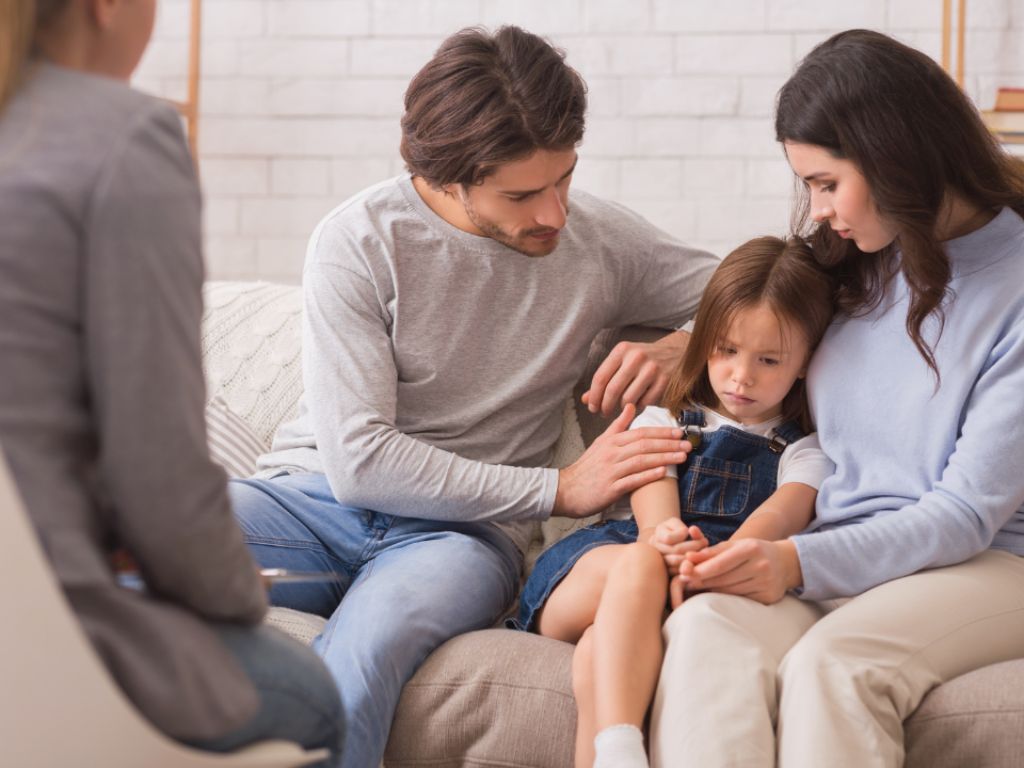An expert offers five suggestions that, when implemented early, can help parents improve their child’s mental health.
It’s challenging to raise kids and strive to develop them into well-rounded adults. While the majority of parents are concerned about their children’s physical health, they regularly overlook their mental health by not taking them to the paediatrician, feeding them good food, and assisting them with their homework. While it is true that kids spend a lot of time online, the recent Covid-19 outbreak boosted kids’ screen time. It unlocked Pandora’s box of psychologically harmful problems, raising severe concerns among parents and teachers.
According to a study published in the Lancet, children between the ages of two and three spend more than three hours a day in front of displays like iPads and television. Compared to kids who use screens for no more than an hour a day, these kids tend to be less physically active at age 5.5, which also impacts their mental health.
These suggestions are most effective when parents implement them at a young age.
Spend time with your kids | Improve child’s mental health
There is no substitute for spending quality time with kids because it is one of the best ways to build relationships with them. It is more important to spend time with them, so they feel safe and loved than it is to spend money on goods. Every day, both parents must set aside time to engage in activities like playing together, watching a movie, or simply talking about their days.
Please pay attention to what your kids are saying –
Because they think it is superfluous, parents frequently ignore what their children have to say. However, they should avoid this since children frequently verbalize their emotions to their parents. Children often tend to keep critical information from their parents a secret, which can have detrimental long-term effects if good communication channels are not established early on. Additionally, suppose your child has trouble communicating. In that case, it’s critical to help them open up and establish clear lines of communication so they have someone with whom to share their thoughts, aspirations, and much more!
Read It -: Menopause Symptoms | Is The Menopause Painful?
Praise your child appropriately –
While every parent corrects and chastises their children for any wrongdoing, it’s crucial to commend them for any virtue they exhibit. When this is done, the kid can focus more on being decent and having self-esteem. Additionally, it is a good idea to encourage them by giving them modest, inexpensive incentives for their excellent behavior.
Set reasonable expectations | Improve child’s mental health
Comparisons should never be made since they can lead to a child feeling inferior. Instead of comparing children to friends and siblings, it is crucial for successful parenting to boost children’s self-esteem and inspire them to reach their individual goals. Even if a child achieves a minor milestone, it is essential to recognize their efforts and guide them toward improving their performance through helpful dialogues.
Encourage actions that can help them cope with stress and anxiety –
Stress and anxiety are widespread in today’s competitive environment. While we are powerless to alter the outside environment, we can instill in our kids the habits and behaviors that will enable them to manage their stress successfully. The issue that we all must learn to face early in life is accepting stress as a part of our lives and working it within the bounds of healthy thoughts and behaviors without overstepping into the unhealthy, pathological zone. For instance, they will inevitably dispute with friends and make mistakes on homework tasks. They need the ability to get beyond these obstacles and strengthen their minds to avoid having an impact in such a situation.
Frequently Asked Question
Facts about mental disorders in U.S. children. ADHD, anxiety problems, behavior problems, and depression are the most commonly diagnosed mental disorders in children.
What are the warning signs of mental illness in children?
Persistent sadness that lasts two weeks or more.
Withdrawing from or avoiding social interactions.
Hurting oneself or talking about hurting oneself.
Talking about death or suicide.
Outbursts or extreme irritability.
Out-of-control behavior that can be harmful.
How Parents Can Support a Child’s Mental Health
Model healthy coping skills. …
Watch for behavior changes. …
Keep communication open and honest. …
Create a routine and set clear boundaries at home. …
Let them know they are loved and supported. …
Provide positive feedback and encouragement. …
Encourage joyful movement.
50% of mental illness begins by age 14, and 3/4 begin by age 24.
Kids and teens need therapy when they have problems they can’t cope with alone. Or they need help when problems affect how well they do, feel, or act. If things don’t get better on their own, kids may need therapy so things can improve.

1 thought on “Parenting Tips : Five tips to improve your child’s mental health”
Comments are closed.